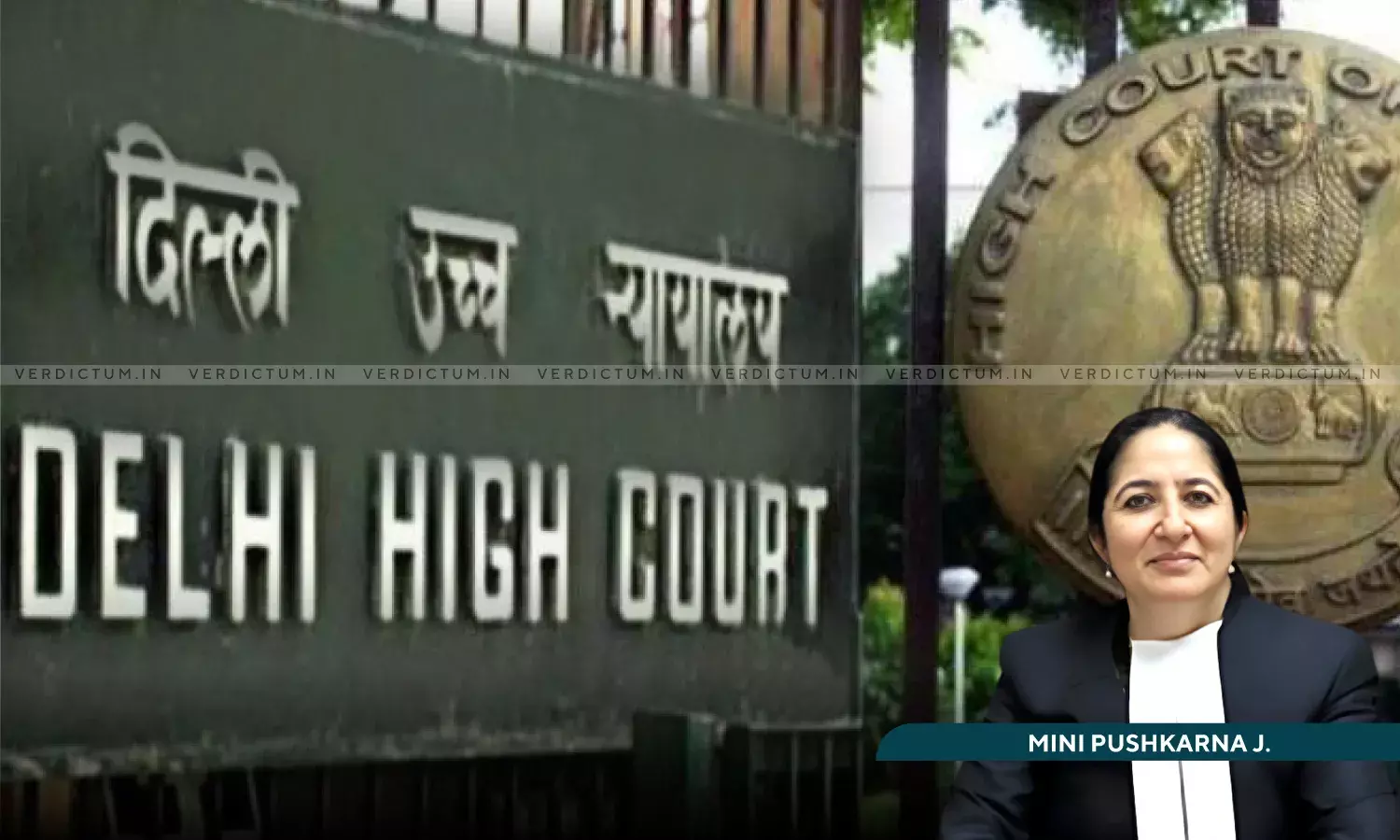Refusal To Offer Reasonable Licensing Terms Constitutes Withholding Work From Public U/S. 31 Copyright Act: Delhi High Court
The Court said that where the licence fee demanded by the owner of a copyright is arbitrary and unreasonable, it amounts to a refusal to allow performance in public and thereby attracts the rigour of Section 31 of the Copyright Act, 1957.

Justice Mini Pushkarna, Delhi High Court
The Delhi High Court has held that even when the copyright owner offers to license its work, if such offer is made on unreasonable or arbitrary terms, it may constitute a refusal to allow public performance under Section 31 of the Copyright Act.
A Single Bench of Justice Mini Pushkarna observed, “When an offer is made on an unreasonable term or a stand is taken which is otherwise arbitrary, it may amount to a refusal on the part of the owner of a copyright."
The Court added, “The Respondent cannot be given a free hand to procure any arbitrary and unreasonable licence fees. The Respondent has to be held accountable for ensuring that it charges a fair and reasonable licence fee for its repertoire...To completely oust the said parties from seeking compulsory licence, if such parties are aggrieved by the tariff of the Respondent, would make the provision of compulsory licensing otiose.”
The Petitioner was represented by Advocate Aditya Ganju, while the Senior Advocate Chander M. Lall appeared for the Respondents.
Brief Facts
The Petitioner was organising a private corporate event for 50 persons. Upon booking the venue, it was informed that a licence must be obtained from the Respondent for playing music at the event. The Respondent’s published tariff prescribed Rs. 55,440/- as the fee for events attended by 1 to 150 persons.
The Petitioner offered to pay Rs. 16,500/-, being one-third of the prescribed fee, considering the event was for 50 guests. The Respondent rejected the offer. The Petitioner reiterated its offer; however, the Respondent initiated a copyright infringement suit. Aggrieved, the Petitioner approached the High Court by way of a petition under Section 31 oof the Copyright Act.
Reasoning of the Court
The Court noted that the compulsory licence mechanism under Section 31 exists to balance the rights of the copyright owner with the public interest in having access to works.
Referring to the Supreme Court’s decision in Entertainment Network (India) Ltd. v. Super Cassette Industries Ltd., where it had been held that Compulsory licences are an exception to the general freedom of the copyright owner to contract, and that an offer to make copyrighted work available on an unreasonable term would also amount to refusal on the part of the owner of copyright.
Rejecting the Respondent’s contention that no refusal had occurred merely because a licence was offered on the published tariff, The Court observed, “This Court does not agree with the submission on behalf of the Respondent that there is no withholding of copyrighted work by the Respondent, as the same is available to the public on the tariffs as available on the website of the Respondent.” The Court added, “The licence fee as demanded by the Respondent is not commensurate with market standards, as compared to RMPL, which is charging considerably lesser licence fee for their repertoire of songs”.
Addressing the Respondent’s argument that sound recordings are not covered under “performance in public”, the Court noted, “Performance in public of a sound recording, when refused, which includes raising unreasonable and arbitrary demand towards tariff/licence fee, would attract the rigours of Section 31(a) of the Copyright Act…The term ‘work’ as defined under Section 2(y) includes sound recording.”
The Court also referred to statutory provisions and held that the Respondent could not charge excessive fees by relying on its market dominance, and stated, “The rights of the public to republish, perform and have access to the published works on fair and equitable terms, cannot be denied.”
The Court opined that to completely oust the parties from seeking compulsory licence, if such parties were aggrieved by the tariff of the Respondent, would make the provision of compulsory licensing otiose.
The Court concluded that the Petitioner had made a bona fide request for licence and that the refusal by the Respondent was unreasonable in terms of Section 31, and held that the Petitioner was entitled to a compulsory licence. " A conjoined reading of the aforesaid Sections of the Copyright Act, clearly brings forth that ‘work’ includes ‘sound recording’, and that ‘publication’ of ‘work’ includes communicating the work, i.e., the sound recording, to the public. ‘Communication to the public’ includes performance in public. Thus, it is evident that ‘performance in public’ of the work, would also include sound recording. The performance in public of a sound recording, when refused, which includes raising unreasonable and arbitrary demand towards tariff/licence fee, would attract the rigors of Section 31(a) of the Copyright Act. Therefore, the contention of the respondent that the right to ‘perform the work in public’, is limited to literary, dramatic and musical works, is rejected.", the Court observed.
Accordingly, the Court directed the parties to file their affidavits of evidence in order to determine the compensation, terms, and conditions of licence.
The matter is scheduled to be heard on May 29, 2025.
Cause Title: Al Hamd Tradenation V. Phonographic Performance Limited (Neutral Citation: 2025:DHC:3695)
Appearance:
Petitioner: Advocates Aditya Ganju, Pallavi Shali, Sambhavi Mishra, Samanyu Sethi
Respondent: Senior Advocate Chander M. Lall; Advocates Ankur Sangal, Sucheta Roya,
Raghu Vinayak Sinha, Shaurya Pandey, Ananya Mehan


